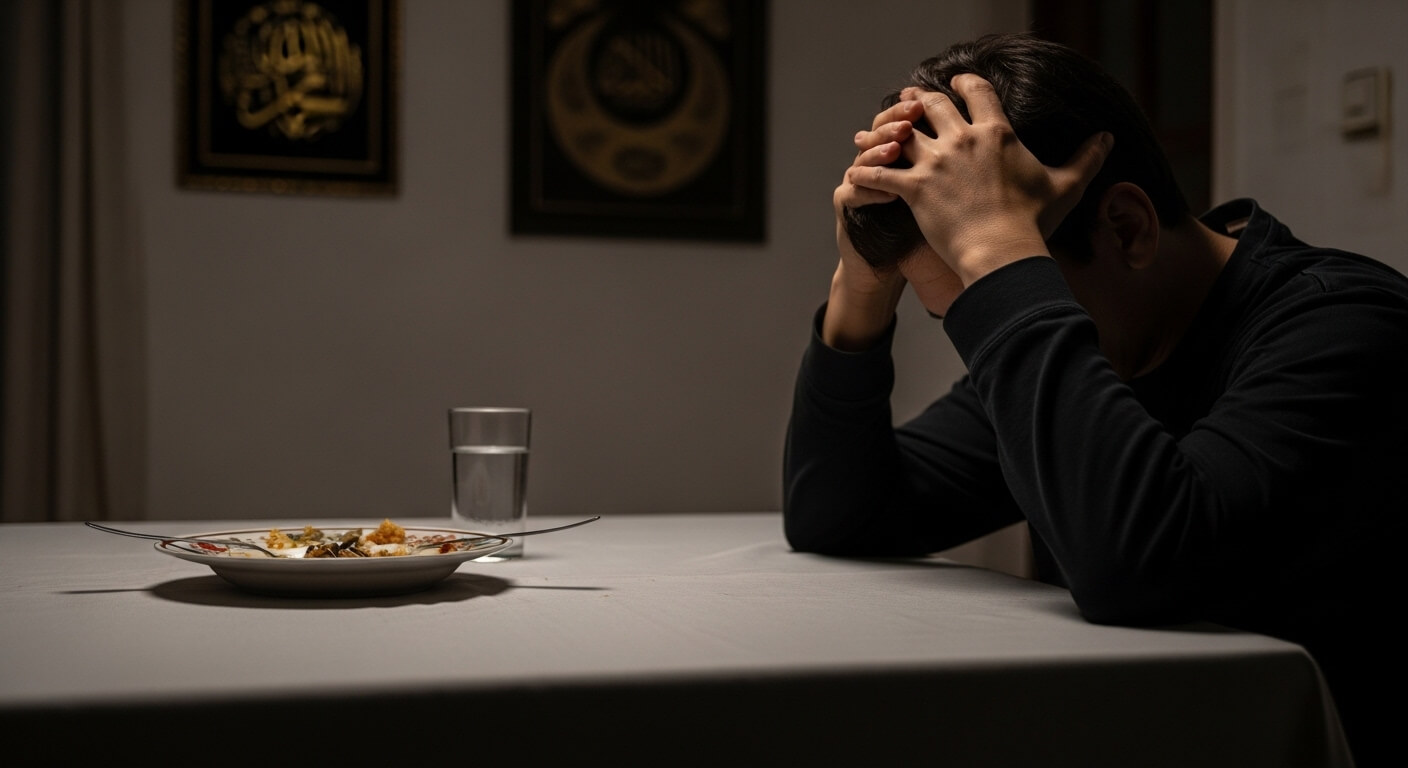Anxiety in Islam: Islamic Ways to Find Relief

Anxiety is a common struggle worldwide, often linked to stress. It disrupts daily routines and makes it harder to move forward with the goals you want to achieve.
In Islam, anxiety is seen as a natural fear response of the mind and body. For Muslims, it is understood as a psychological struggle, not something tied to the past.
Rather, anxiety often arises in the present or about the future, fueled by the fear that past experiences may repeat themselves.
Key Takeaways
- Faith-aligned strategies for Muslims dealing with anxiety include adjusting expectations, strengthening remembrance of Allah, avoiding comparisons with others, maintaining a healthy lifestyle, and seeking guidance from a Muslim therapist.
- Feeling anxious is a normal human life experience, and Islam offers some practical methods to manage it.
- The belief in reliance and trust in Allah (Tawakkul) provides calmness and comfort in stressful situations.
- Consistent remembrance of Allah and dua can ease anxiety and calm the body and soul.
Overcoming Anxiety Through Islamic Teaching
There are several ways to deal with anxiety without allowing it to consume your life or restrain you from achieving your desired goals. Following are the ways you can adapt to deal with anxiety:
Religiously Sensitive Therapy for Anxiety
Dealing with anxiety can be challenging, but support that is sensitive to your religious beliefs can make the process easier and more comforting.
Religiously sensitive therapy provides guidance and coping strategies while respecting your faith, helping you manage anxious thoughts in a way that aligns with Islamic values.
This approach combines practical psychological tools with spiritual reassurance, allowing you to address anxiety without feeling that your beliefs are being compromised.
Remembering Allah
The best solution that Islam provides for anxiety, stress, and worry, is to connect to Allah.
If you’re struggling with anxiety, turn to Allah, the best listener. As Allah says in the Holy Quran:
“Call upon Me, I will respond to you.” – Surah Ghafir 40:60
When you connect yourself to Allah, you discover inner peace. It helps you assert better control over your mind and hence the emotional and physical responses, which are often experienced as anxiety.
Altering Your Expectations
The best way to deal with your stress levels is to modify your expectations, which is actually what creates your fear, or the feeling of fear in your life.
If you concentrate, fear can be regulated or removed just by changing your expectations, or the way you think about your expectations. Change your expectations and your thinking about it, and it will start to not look so stressful.
Avoiding Comparisons With Others
We experience anxiety in part because we frighten ourselves into competition with others. We tend to look at other people and feel that they are better than us, and we need to compete.
Comparisons can be the most destructive factor that most people suffer from. You should accept yourself for who you are and be satisfied with where you are right now.
Maintaining a Healthy Lifestyle
A healthy lifestyle plays a vital role in reducing anxiety and improving emotional well-being.
Regular exercise helps release physical tension and elevate mood, while nourishing whole foods support both body and brain health.
Adequate sleep and proper hydration further restore balance and refresh the mind.
Seeking Support to Regain Control
Islam encourages you to seek support in difficult times. Stay in touch with your family or friends, and try professional counselling, to support a healthy mind and alleviate emotional distress.
Conclusion
Anxiety can be managed through both practical and spiritual approaches. Putting faith and trust in Allah can be particularly comforting and ease your anxiety.
A healthy lifestyle can also strengthen the mind and body. By using both spiritual and practical ways to combat anxiety, a balanced life with inner peace, resilience, hope, and tranquility is possible.
If you are looking for Islamic therapy options in Canada, you can check out Shifa Therapy for Canadian Muslim counselling services at affordable rates.
Frequently Asked Questions (FAQs)
Yes, prayer (Salah) can relieve anxiety and provide calmness by connecting a believer to Allah, which is spiritual relief, and can help a mind to calm and relieve anxious thoughts.
Faith is very important however, Islam also encourages seeking practical platform for support, such as healthy behaviors, support from friends and family, and professional support if necessary.



